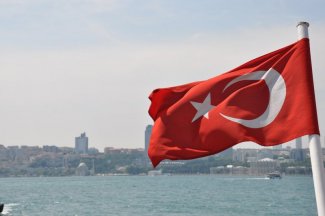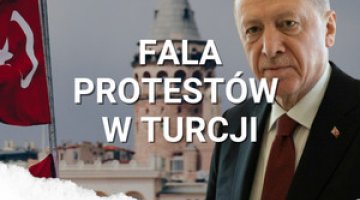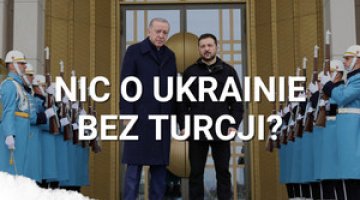Escalation of the Turkey-Greece dispute with EU sanctions on the horizon

Tensions between Turkey and Greece have escalated in recent weeks, involving a number of external actors, including the EU and NATO. The dispute revolves around Turkey’s exploration of natural gas in the waters between the Greek islands and Cyprus. Ankara sees the area as part of its exclusive economic zone, which Athens does not recognise. At the beginning of August, the Turkish Navy began to escort its country’s research ships, to which Greece responded on 26 August with military manoeuvres, in which French frigates and aviation also participated (Paris has given Athens strong support in the dispute with Ankara). These actions have been accompanied by very sharp anti-Turkish statements by Greek leaders and military figures.
Mediation between Turkey and Greece had been initiated by Germany before the dispute escalated, but these informal negotiations under Berlin’s supervision did not bring any results. In this situation, at the end of August, the EU’s head of diplomacy Josep Borrell threatened to impose sanctions on Turkey; these would cover individual politicians, impose restrictions on vessels (including blocking their access to European ports), as well as unspecified financial consequences. Decisions on this matter are to be taken at a special summit of the European Council scheduled for 24-25 September.
Commentary
- In recent weeks, the traditional Turkish-Greek tensions have reached a level not seen since the 1990s. Turkey, which is not a signatory to the United Nations Convention on the Law of the Sea (UNCLOS), argues that Greece cannot establish an exclusive economic zone (200 nautical miles in a straight line from the coast) around its islands for as long as it fails to recognise the Republic of Cyprus. Ankara is aiming to partition the waters on the basis of bilateral agreements with individual countries, but so far it has concluded such agreements only with the Turkish Republic of Northern Cyprus (a para-state which only Turkey recognises) and Libya.
- Turkey’s relations with other countries in the region have also improved recently, mainly because of the growing gas potential in the eastern part of the Mediterranean. Due to significant discoveries of deposits off the coasts of Egypt, Israel and Cyprus over the past decade, the Eastern Mediterranean Gas Forum was established in Cairo at the beginning of 2020, with the participation of both directly interested parties and France & Italy, among others. Turkey, whose relations with the majority of the regional actors are more or less tense, has been excluded from this project. Ankara deems any economic and political cooperation projects in its neighbourhood which ignore its interests to be hostile; thus, in accordance with its ‘Blue Fatherland’ (Mavi Vatan) doctrine, it has been researching the disputed waters on its own account, as well as boosting its military presence both on the sea and the surrounding territories (for example in Libya).
- The current tensions between Turkey and Greece have made visible the already existing frictions within NATO (to which both countries belong) and the European Union. While the Alliance’s leadership has been working to persuade Ankara and Athens to enter negotiations on the dispute, France is siding with Greece and becoming militarily involved in the region. Its tough anti-Turkish stance stems from the fact that Paris regards Ankara’s actions in the Mediterranean (where France has ambitions to strengthen its leadership) and the Sahel as a threat to its own interests. However, the attitude of the French government translates into a lack of consistency in the Western approach to the problem. On the one hand, the EU’s head of diplomacy Josep Borrell was the first to signal that sanctions could be imposed on Turkey, and has additionally called it out (along with Russia and China) as an expansionist and revisionist state. On the other hand, the President of the European Council Charles Michel, while not ruling sanctions out, suggested convening a conference in which the interested parties could participate, emphasising the need to return to dialogue. Michel’s statements are in line with Berlin’s policy of trying to de-escalating the dispute. Otherwise, both open Turkish – Greek conflict and economic collapse in Turkey – which would be very likely if sanctions are imposed – would seriously affect the EU’s internal stability (the uncertain future of its cooperation with Turkey on migration, and also a possible economic shock in the euro area, considering the scale of the Turkish economy’s ties with the EU).
- Turkey is aware of all the inconsistencies generated by its policy within the Euro-Atlantic structures, and is intentionally fuelling them. One expression of this is the sharp anti-French tone in its rhetoric, such as accusing Paris of supporting the Libyan rebel forces of General Khalifa Haftar, whom Ankara considers as a ‘putschist’. Also, however, Ankara has taken an anti-German turn in public; despite Berlin's mediation efforts, President Recep Tayyip Erdoğan has accused Chancellor Angela Merkel of partiality. With regard to NATO, though, the government in Ankara is presenting itself as open to talks, and has blamed Athens for not being able to hold them. By pursuing this ‘two-track’ policy, Turkey is playing a very risky game, which is intended to force the EU to take its interests into account. At the domestic level, the anti-Greek and anti-Western rhetoric has consolidated the Turkish public around the government, which has to deal with both economic problems and an expected second wave of COVID-19 outbreak. However, such a policy may prove counterproductive if the anti-Turkish option prevails in the EU and sanctions are imposed.




